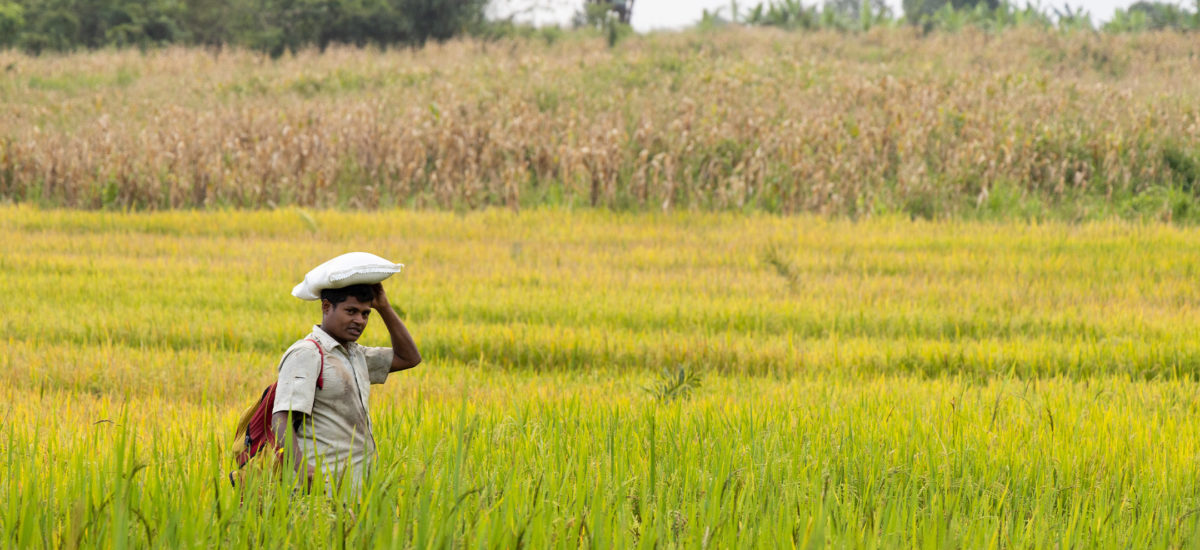Photos by Noopura Liyanage
Our journey began with a seven hour drive from Colombo. As we travelled, the scenery transformed from verdant mountains to emerald plains bordering the Uva province. We reached the solitary stretch between Padiyathalaawa and Bibile, dotted with unfinished houses standing far apart. Here, in the hidden village of Ekiriyankumbura, we investigated the ongoing struggle of the villagers against a proposed sugarcane project threatening their way of life.
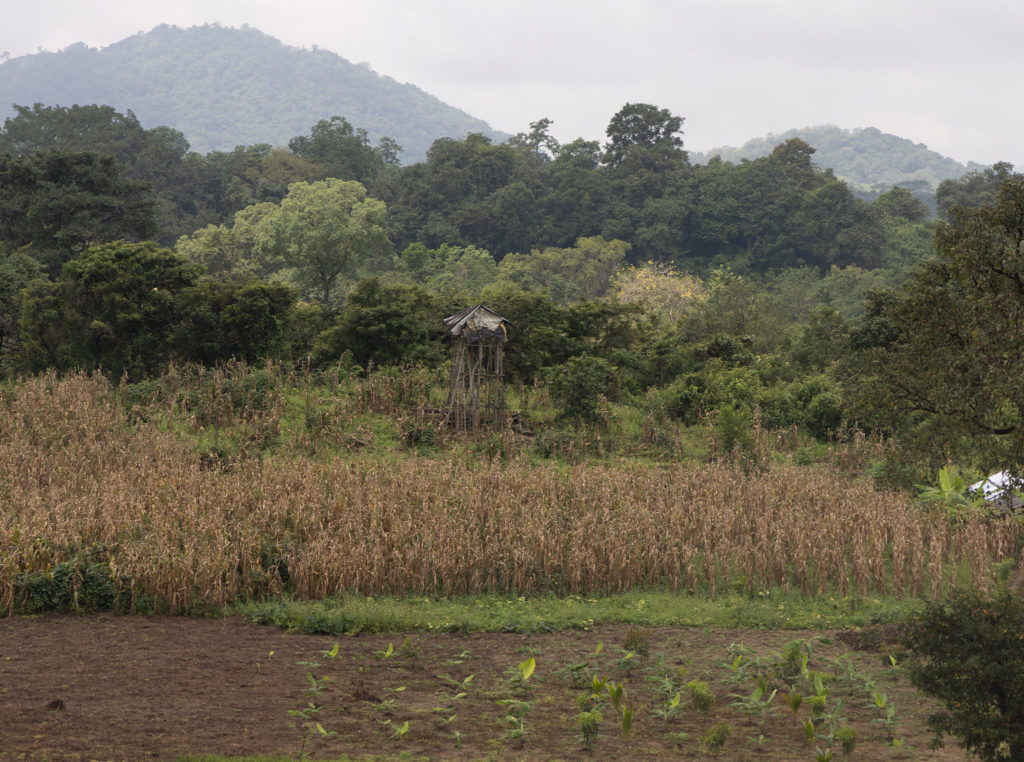
For generations the people of Rideemaliyadda, Dehigama and Ekiriyankumbura have thrived on agriculture. Many practice chena cultivation while others grow maize on the fringes of the Nilgala forest reserve. Others cultivate paddy, millet and other grains and are slowly to transitioning crops like coconut, mango and cashew. However, a dark cloud has loomed over their peaceful existence since 2006.
The trouble began when Booker Tate, a British agribusiness, initiated the Bibile Sugar Development Project aiming to establish a sugarcane factory and vast plantations. The villagers, however, met this attempt with fierce opposition, forcing the company to retreat. This was just the first battle in a long war. Next came the Chinese company, Guangdong Guangken Sugar Group, in partnership with a local firm, IMS Holdings. Their attempt also faltered in the face of public outrage. Finally Gazelle Ventures, a Singaporean company, joined forces with IMS Holdings but their efforts to establish the project met with similar resistance. The villagers, through several clashes and protests, forced the companies and the Mahaweli Authority, a state body, to temporarily back down.
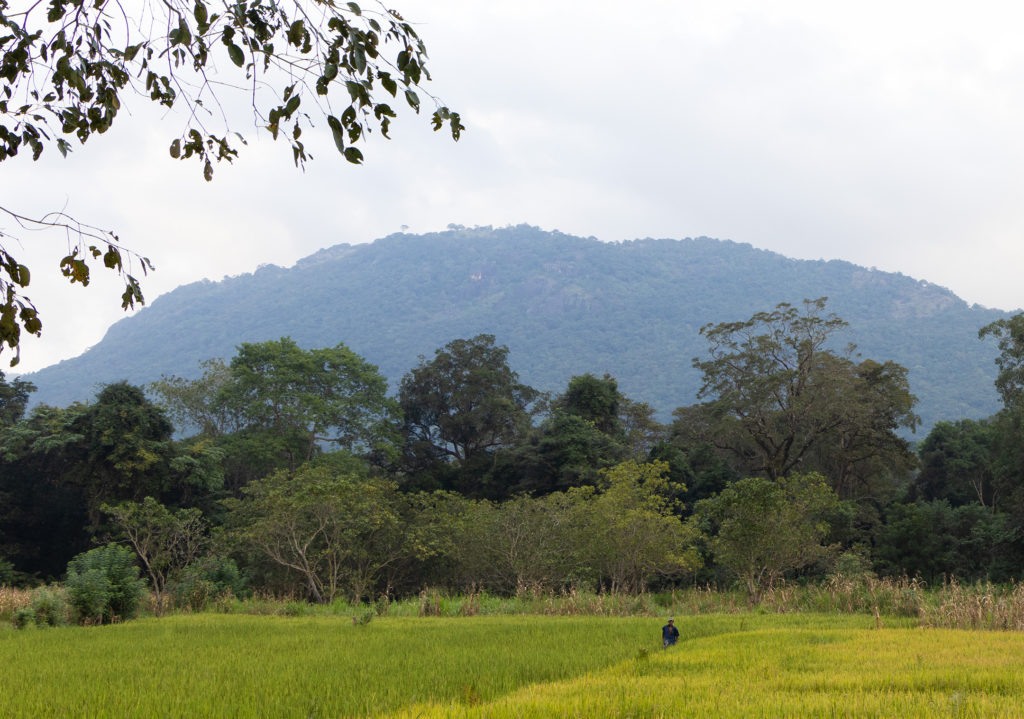
The land at the heart of the conflict, locally known as the field, stretches to the border of the Nilgala reserve, separated by a narrow stream called Maduru Oya. As we walked through the fields, the vast golden expanse of maize cultivation unfolded before us. The constant melodies of peacock cries and bird song filled the air, coupled with the distant line of towering trees and the golden fields of crops draw a perfect picture.
This ongoing struggle between the farmers and the authorities is a story of resilience and resourcefulness. The villagers have organised themselves into a formidable force, employing various strategies to protect their land and livelihood. When bulldozers first arrived in 2006, the community staged a powerful sit in protest, blocking their path and refusing to budge.
Their fight extended beyond traditional methods. In a unique act of defiance, they “ordained” a thousand trees in the Nilgala reserve. Certain lands identified by Booker Tate as wasteland were in fact part of the protected forest. With the support of local monks and the Centre for Environmental Justice (CEJ) the trees were declared sacred, further bolstering their claim to the land.
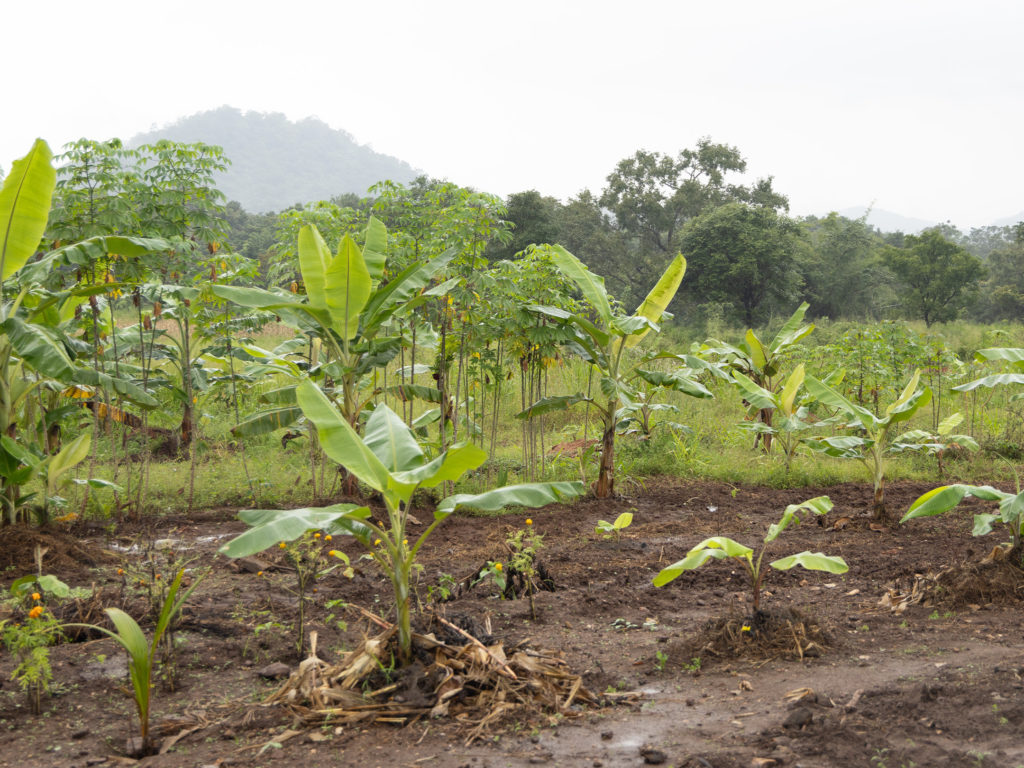
One of the farmers, Namal, has started growing cashew and peppercorn apart from his usual maize cultivation. He says that they are never going to give up their land and that they will do whatever it takes to win the rights for these land. “We are going to continue this struggle no matter what people say,” he said.
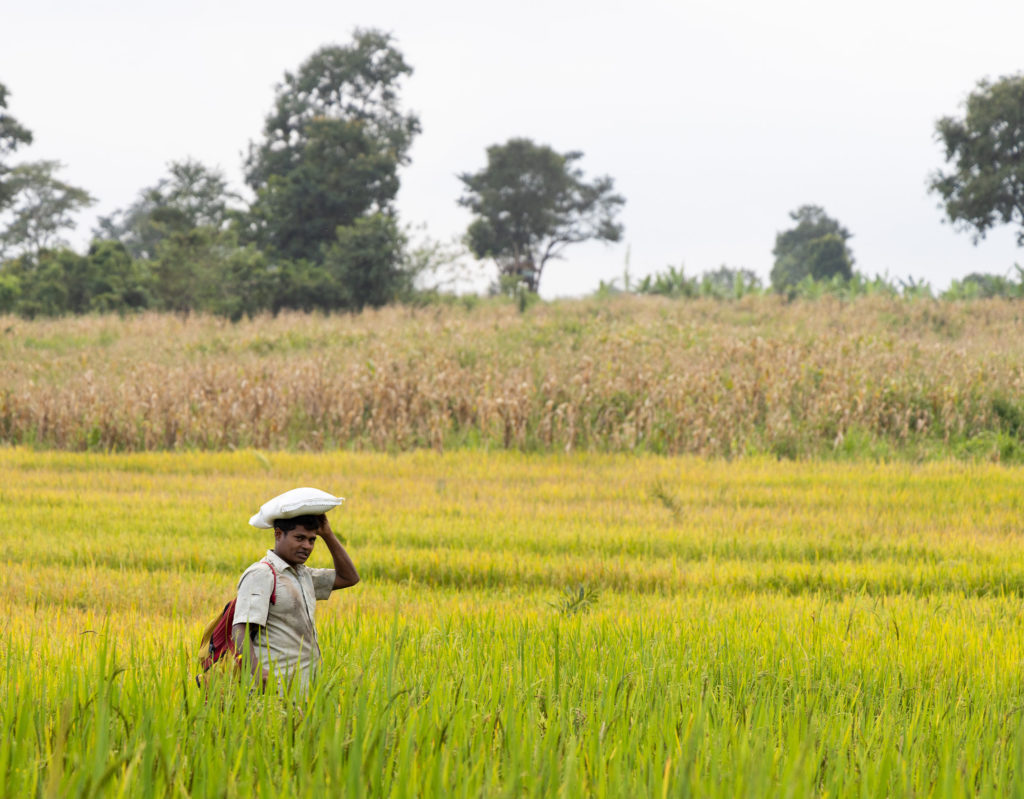
The situation is further complicated by the involvement of state institutions. In 2007 the Ministry of Wildlife and Forest Conservation and the Department of Archeology expressed concerns about the project’s environmental impact. In a strategic move, the state transferred the land from the Forest Department to the Mahaweli Authority, which could initiate development projects, raising questions about transparency and accountability. The Mahaweli Authority has been evicting farmers and has filed lawsuits against 50 families who have been cultivating in the area for almost 40 years.
Even the Department of Archeology, despite issuing reports on significant archaeological evidence in the area including caves, pathways and ancient burial grounds, ultimately granted permission for the project.
The proposed sugarcane project poses a significant threat to wildlife, particularly elephants. The area serves as a vital elephant corridor and the villagers have coexisted peacefully with the animals for generations with no record of conflict. The project will disrupt this delicate balance, potentially forcing elephants into villages, leading to conflict and endangerment.
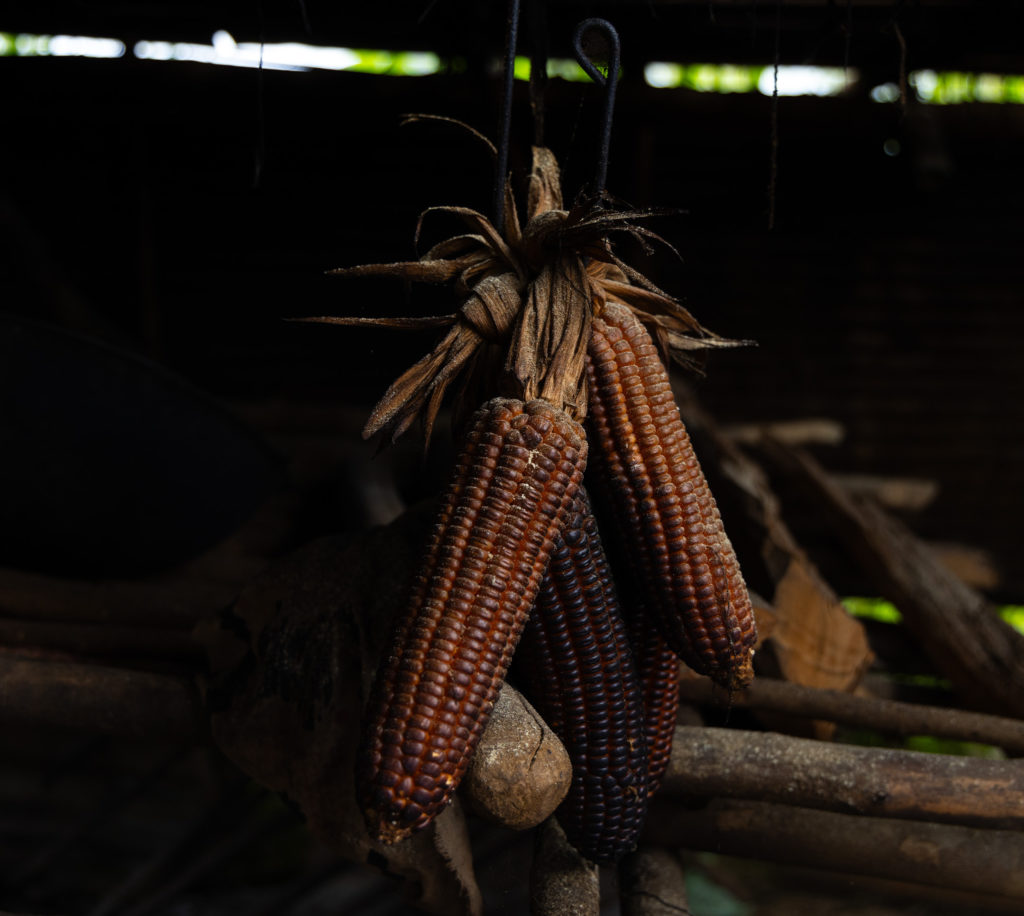
In February 2022, the situation reached a boiling point. Using an eviction order, the Mahaweli Authority and the police attempted to destroy crops and evict farmers. Faced with this aggression, the entire community rose up in protest, forcing the authorities to retreat.
A 45 minute walk across the rustling maize fields leads us to a beautiful scene: a homestead surrounded by fruit trees and vegetable plots. Beside it stands a makeshift treetop hut, a testament to resilience. This is the home of Sugathapala and Siriyawathi, their lives uprooted in 2022 when bulldozers ravaged their fields and house. They have built a simple shelter of bamboo, polythene and metal sheets in a field.
It’s harvest season so Sugathapala and Siriyawathi share the bounty from their salvaged fields. Every meal is a celebration of fresh produce – vibrant beans, peas and corn plucked moments before landing on our plates, either simmering in a pot or roasting by the fire. As dusk approaches, the scattered trees in the deepening light come alive with flickering flames and electric beams from the huts.
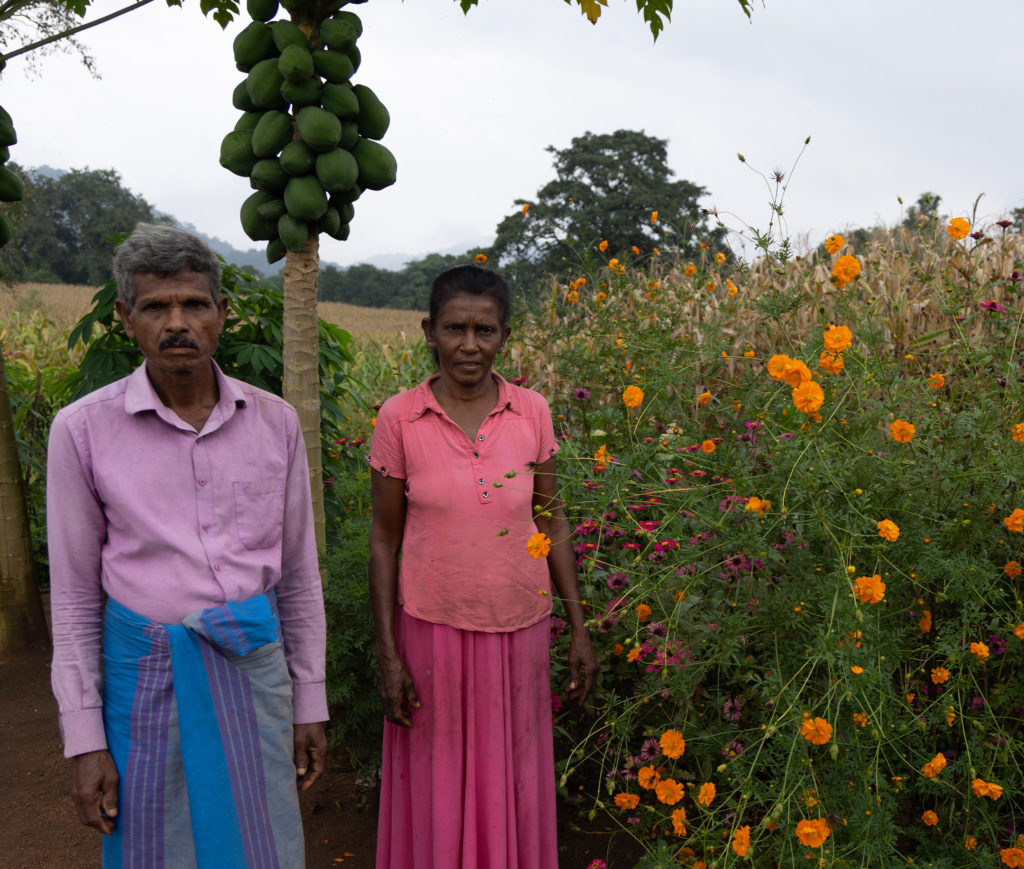
As night descends, some of the scattered trees start to light up. An occasional hoot and the flickering flames and electric torch lights emit from the tree houses.
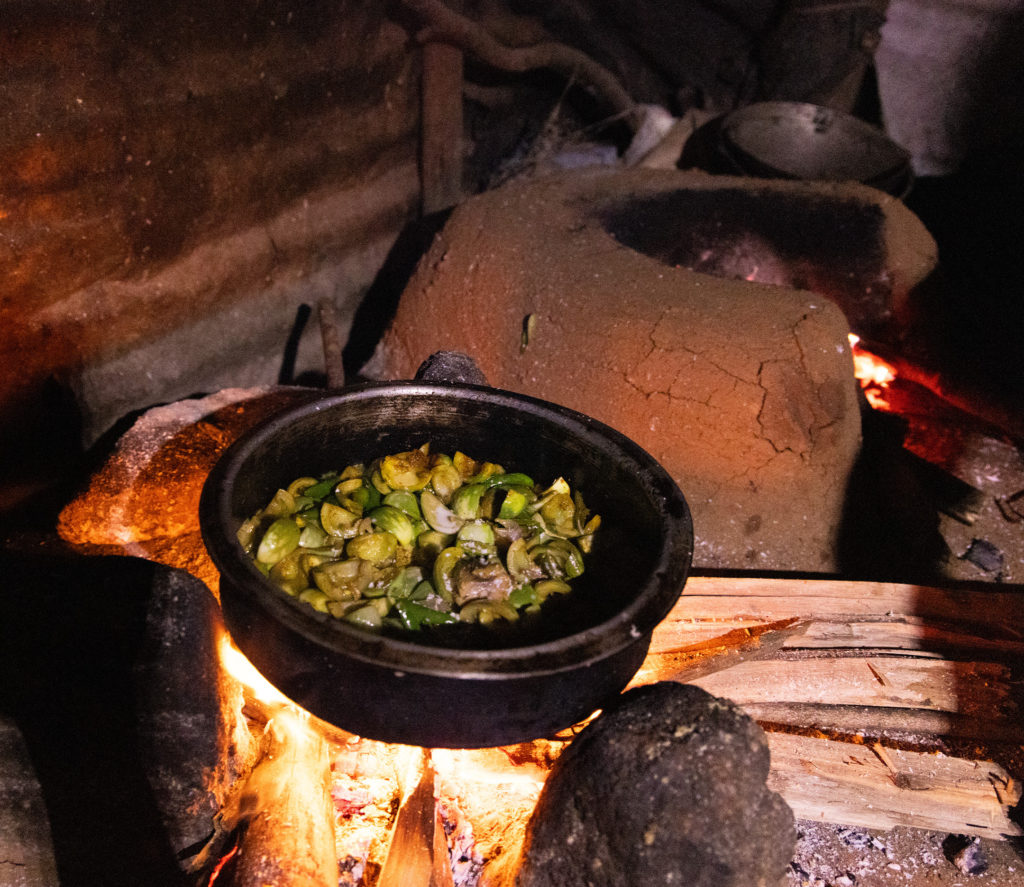
Now, a different battle starts. Elephants come to the field at night to feast on the crops, which the farmers try to protect. They get together to chase the elephants back into the forest. Eventually some of the crops are eaten yet farmers say they have grown enough for the elephants. “The elephants have learnt to stay still when the torch might is aimed at them. And when it is turned off the elephant slowly moves back to the forest,” another farmer said.
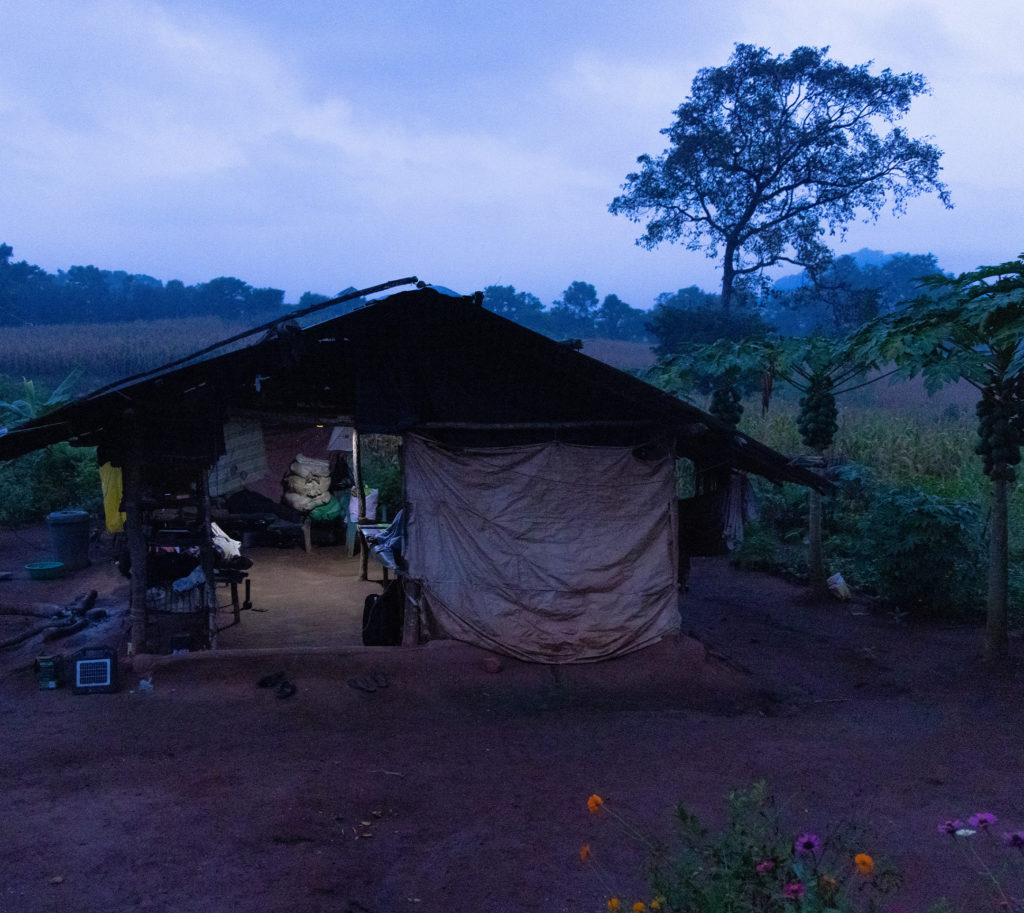
In another instance, the community came together and dismantled a 14 kilometre fence erected by the Mahaweli Authority within two hours, demonstrating their unwavering commitment to protecting their land.
Their daily lives revolve around nature and they are acutely aware of the consequences of the proposed project. Despite their humble lives and limited resources, the villagers are determined to fight for their future and to hold onto their traditional connection to the land.
Although there is an ongoing case regarding the land in the Supreme Court, a collaborative effort between the community, activists and organizations such as CEJ, the Movement for Land and Agricultural Reform and the People’s Alliance for Right to Land are offering a promising solution. By transitioning from the traditional chena cultivation to permanent crops such as coconut, cashew, lime and rambutan, the villagers are not only strengthening their claim to the land but also charting a path towards a more sustainable future. “We have planted permanent crops, no matter what happens, we will live on this land,” declares Namal.

